Amid US campus movement, purge of pro-Palestine professors intensifies
By Ivan Kesic
In recent weeks, more than six months into the Israeli war on the besieged Gaza Strip, university campuses across the United States have witnessed massive pro-Palestine protests.
University administrations together with law enforcement agencies have tried to suppress these demonstrations, using indiscriminate force. However, the protesting students have stood their ground.
Students at dozens of universities in the US are protesting against the genocidal Israeli war on Gaza, where nearly 34,600 people have been killed since October last year, mostly women and children.
More than 1,000 people have reportedly been arrested on US campuses since April 18, when a pro-Palestinian encampment at Columbia University in New York was forcefully removed by police.
These university students have been joined by their faculty members as well in pro-Gaza encampments on various campuses, from Columbia to Yale to California to Boston to Virginia.
While many students have been beaten up, arrested and suspended by their respective universities for protesting the Israeli genocidal war on Gaza and calling for divestment of their universities, there have also been reports about professors being dismissed and suspended from their teaching jobs.
In all this, the role of influence-peddling pro-Israel lobby groups in the US has been prominent, who have traditionally thrown around their weight on US university campuses.
In the last two days of April alone, American student outlets reported that at least six faculty members from Washington University in St. Louis, four of whom were arrested during the April 27 encampment protest, were effectively banned from the campus.
Their pro-Palestine solidarity position, as it appears, cost them their jobs. They were reportedly prohibited from communicating with other university staff and students, even off the campus.
Hundreds of pro-Palestine protesters and students flocked to the UT (University of Texas) to urge the university to divest from Israel-affiliated companies and show support for Palestine. pic.twitter.com/IKyaMnjHqP
— Press TV 🔻 (@PressTV) May 5, 2024
‘Freedom of speech ends’
“My freedom of speech has been effectively ended,” Washington University anthropology professor Bret Gustafson, one of these six suspended faculty members, was quoted as saying.
Gustafson shot to prominence in November last year when he supported a nonviolent protest outside of the home of the president of the American Israel Public Affairs Committee (AIPAC), a powerful pro-Israel lobby organization, calling for an end to the Israeli war on Gaza.
He was immediately misquoted and falsely accused of supporting "setting off gas canisters outside the homes of Jews" by pro-Israel lobby organizations in the US.
Just a day before the encampment in St. Louis, during a protest at Emory University in Atlanta, professors Noëlle McAfee and Caroline Fohlin were arrested for questioning the police's use of unwarranted force against students at the university.
According to experts, their future in American academia appears to be in limbo now, considering the number of American professors banned and suspended since the launch of the war on Gaza.
In November 2023, barely a month after the Israeli regime launched its bombing campaign on Gaza, the University of Arizona "temporarily replaced" Assistant Professor Rebecca Lopez and Community Liaison Rebecca Zapien for facilitating a classroom discussion on the Israeli regime's war crimes.
At the beginning of March, Jairo Fúnez-Flores, a professor at Texas Tech University, a flagship education institution of the Texas Tech University System, was suspended for pro-Palestinian comments on the X platform (formerly Twitter), which were termed "hateful, anti-Semitic, and unacceptable".
In January, after a petition pushed by the pro-Israel lobby in the US, Professor Amin Husain was fired from New York University for questioning the Israeli narrative about the war on Gaza.
Long tradition of Zionist censorship of professors
The Israeli lobby in the US has always sought to shape the American policy toward the Israeli regime and the wider region in a way that is seen as favorable by the occupying entity in Tel Aviv, and which includes silencing the advocates of pro-Palestinian cause on the US campuses.
According to William Robinson and Maryam Griffin, editors of the book We Will Not Be Silenced, in which numerous professors from US campuses have spoken about their experiences, the influence of the Israel lobby on American academia is unparalleled in terms of resources and pressures.
Thousands of students, activists and media personalities from dozens of Zionist organizations, financed with tens of millions of dollars, actively take part in these attempts to silence pro-Palestine voices.
Efforts to protect the Israeli regime from criticism have targeted individual speakers, visiting professors, and guest lecturers, with an aim to create an atmosphere where free expression and open debate do not exist, and where the Israeli apartheid and occupation are not questioned.
Among the oldest known examples of academic censorship of this type are the pressures against Pete McCloskey's 1984 Stanford University appearance, when AIPAC relied on student activists.
McCloskey, a Stanford alumnus and former Congressman, was also a prominent critic of unconditional US support for the Israeli regime, its policies and illegal settlements in the occupied West Bank.
Zionist organizations slandered him as an "anti-Semite" and helped ensure his defeat in his 1982 Senate campaign, and on this occasion, they demanded that he be banned from teaching or that he include pro-AIPAC viewpoints in his course syllabus.
The Stanford University faculty review found the pro-Israel student group guilty of serious abridgments of academic freedom, so McCloskey eventually received a formal apology from the university provost.
Dozens of pro-Palestine graduates interrupted the University of Michigan commencement to protest against Israeli atrocities in Gaza and call for divestment from Israeli-affiliated companies. pic.twitter.com/wDLJYvI7K4
— Palestine Highlights (@PalHighlight) May 5, 2024
Denial of hospitality to visiting lecturers
One of the most notable cases is the ban on Desmond Tutu, a world-renowned activist against South African apartheid, from delivering a speech at the University of St. Thomas in Minnesota.
He was invited to the lecture by members of the Justice and Peace Studies program, and his participation was opposed by the Zionist Organization of America (ZOA) and the Jewish Community Relations Council of Minnesota and the Dakotas.
As the reason for their opposition, the organizations cited "particularly hurtful comments" in which Tutu had slammed the Israeli regime's violation of human rights in the occupied Palestinian territories.
The university president succumbed to their Israeli lobby pressure and canceled the visit of Tutu, which was communicated to him in a letter from Cris Toffolo, the chairperson of the program who invited him.
Toffolo in the same letter expressed her disagreement with the university's decision, and this prompted the St. Thomas administration to quickly remove her as chair of the Justice and Peace Studies program.
After an avalanche of student and international criticism, the university again sent an invitation to Tutu, but he conditioned his arrival on the return of Toffolo to her previous position, which was not respected, therefore he irrevocably refused to deliver the much-anticipated lecture.
A similar situation took place a few years earlier when Harvard University invited Tom Paulin, an Oxford professor and one of the most prominent British poets, to give a speech at the Department of English.
The invitation was withdrawn after then-Harvard's president expressed opposition to it, due to Paulin's criticism of Zionism and Israeli apartheid politics. Even though the department later overruled the decision and sent the invitation again, Paulin refused to visit the campus.
Both Jewish and Palestinian-American victims
Harvard University has seen several other cases of cancellations of scheduled lectures by critics of the Israeli regime, including historian Norman Finkelstein and biologist Robert Trivers, credited to notorious Zionist lobbyist Alan Dershowitz.
Due to the same pressure campaign, Finkelstein lost his job as a professor at DePaul University, and the Anti-Defamation League and other pro-Israel lobby groups asked academic publishers to ban several of his books.
Mehrene Larudee, an assistant professor and Jewish Voice for Peace member, also lost her position at DePaul University in Chicago because of her pro-Palestine advocacy.
Other prominent American Jews, such as Sara Roy, Noam Chomsky and Lisa Rofel, also faced academic censorship for their opposition to the Israeli regime's savage treatment of Palestinians.
American-Palestinian professors, including Joseph Massad, Rashid Khalidi, Edward Said, Nadia Abu El-Haj, Sami Al-Arian, Rabab Ibrahim Abdulhadi and Amin Husain, faced sustained harassment.
The pro-Israel campus group the David Project (TDP), part of the broader Israel on Campus Coalition (ICC), produced the 2004 slander film Columbia Unbecoming which accused Massad of "anti-Semitism."
A university committee then questioned more than a hundred people on campus and concluded that there were no anti-Semitic or other controversial statements by Massad.
Although he was acquitted, they tried to harass him with numerous emails containing offensive and threatening material, and a systematic media hunt was also carried out against him.
Rashid Khalidi and Edward Said also experienced similar accusations and email bombardment with spam, as well as the poet Remi Kanazi, who during his tours of US university campuses was systematically attacked via social networks by ICC-affiliated troll armies.
In 2007, pro-Israel activists unsuccessfully tried to deny tenure at Columbia University to anthropology professor Nadia Abu El-Haj, just because in one of her books she challenged the religious manipulation of archaeology in favor of the hateful Zionist ideology.
Sami Al-Arian, an associate professor of Palestinian origin and computer science at the University of South Florida, spent years in prison on false charges of "terrorism" and was eventually deported from the US in February 2015 to Turkey.
Zionist groups conducted a similar smear campaign against Rabab Abdulhadi, the director of Arab and Muslim Ethnicities and Diasporas Studies at San Francisco State University, because of her pro-Palestinian views.
UN chief renews call for two-state solution, calls Gaza war ‘open wound’
VIDEO | London protests: Tens of thousands reiterate calls for ceasefire in Gaza
Iran clinches 2024 Asian Taekwondo Championships in Vietnam
VIDEO | Press TV's news headlines
VIDEO | Pro-Palestinian protest at Penn leads to multiple arrests
VIDEO | Blockout 2024: targeting celebrities
VIDEO | US 'pause' on arms sales to Israel
VIDEO | Anger amongst Israeli officials


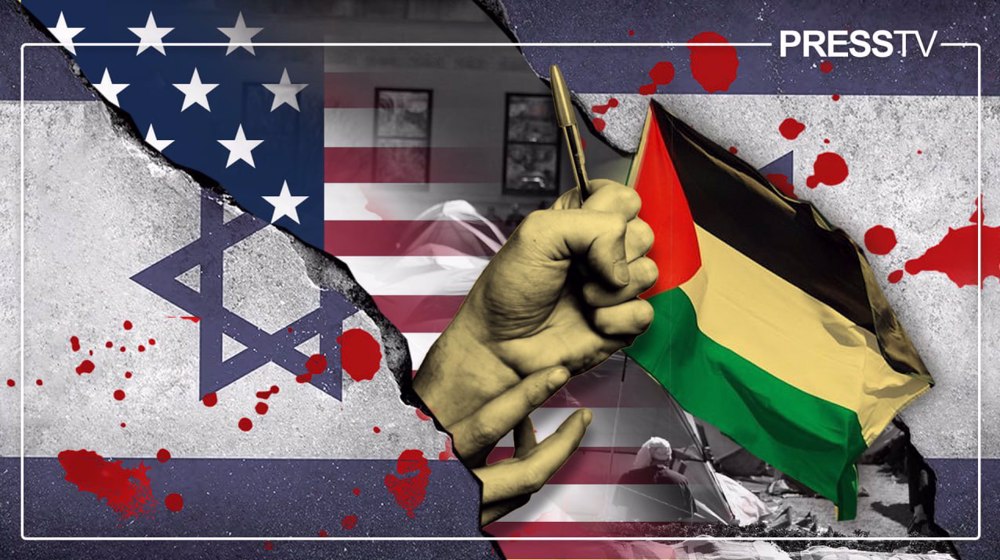
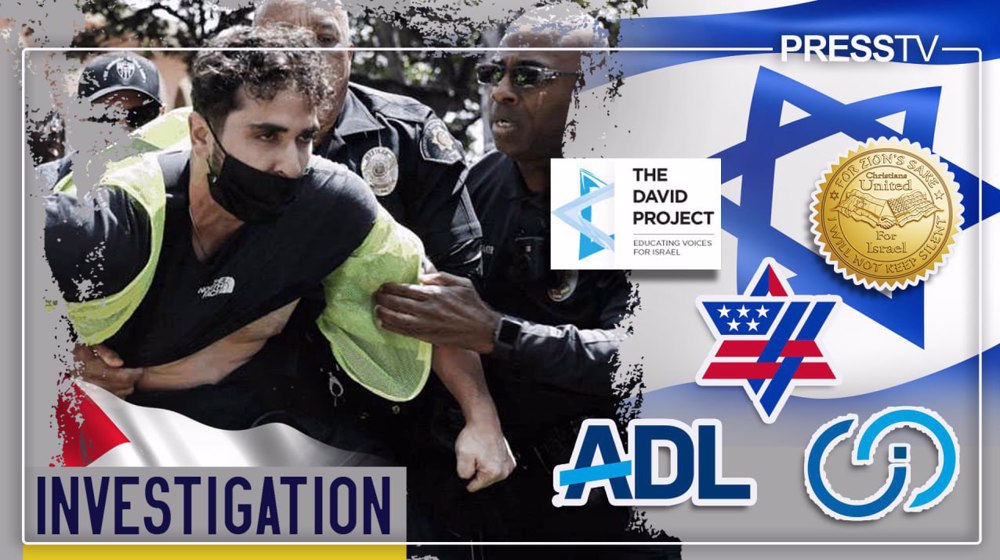
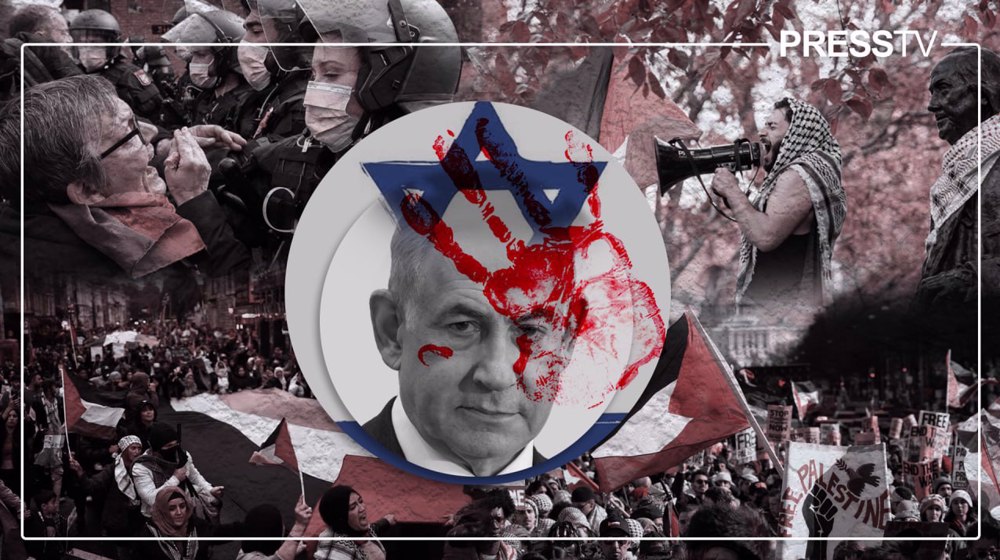
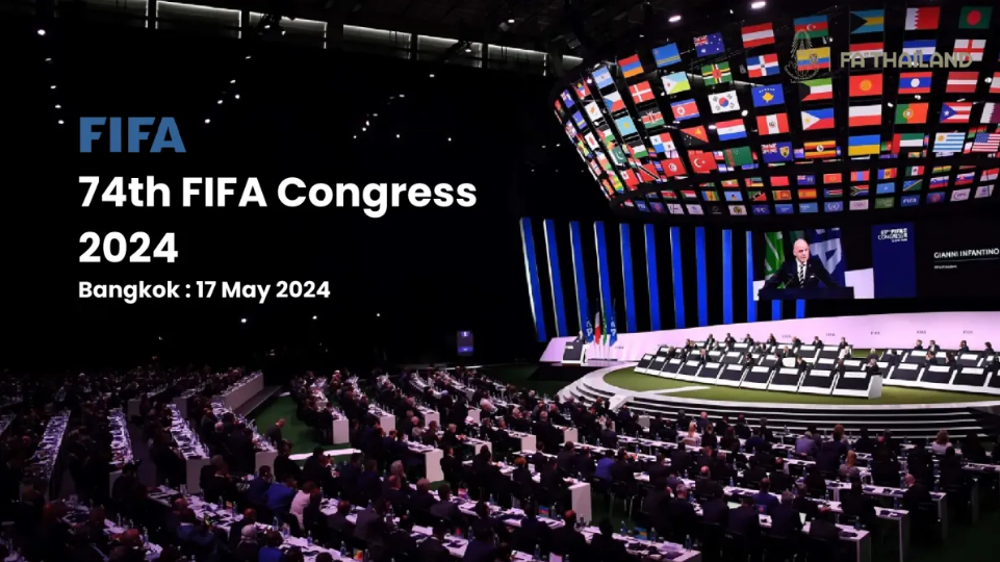





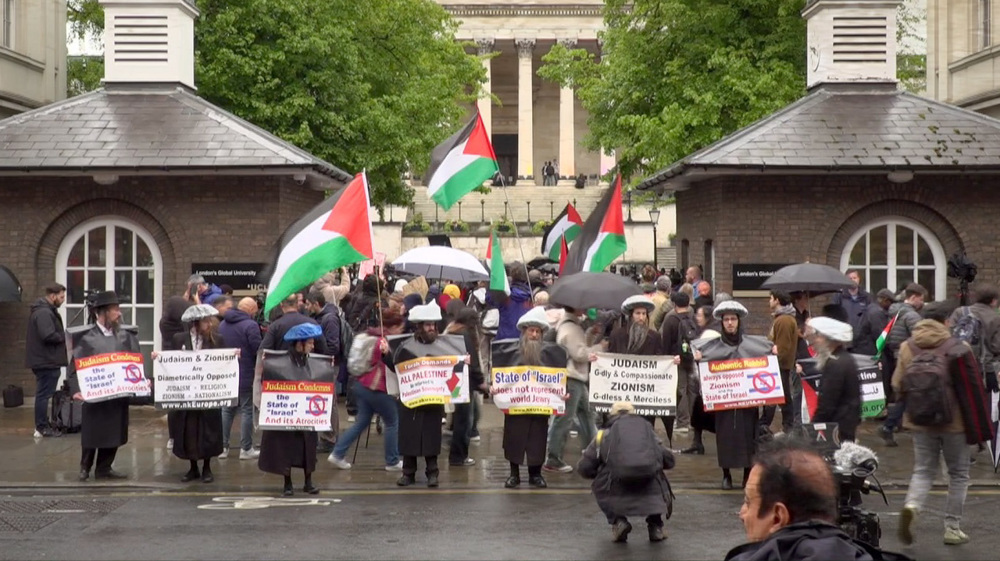
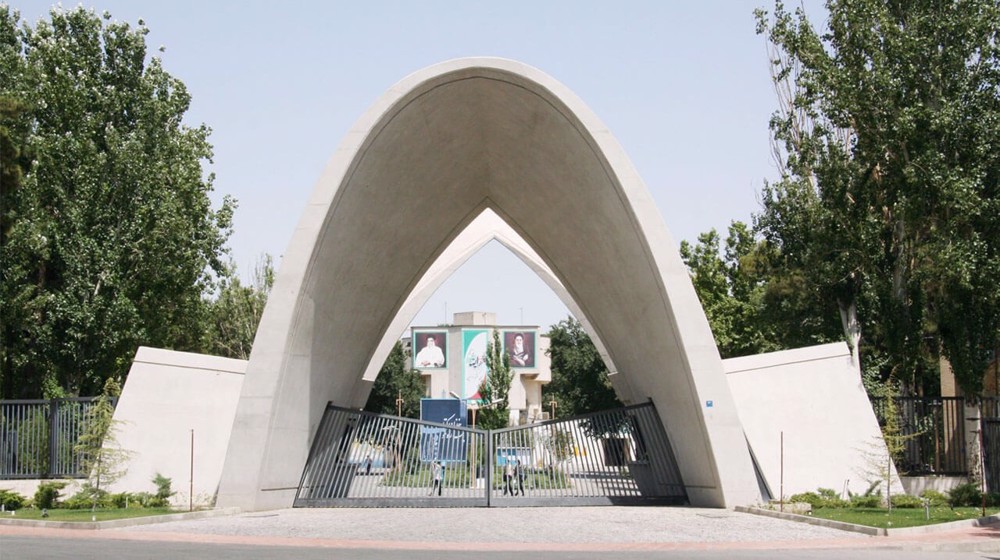
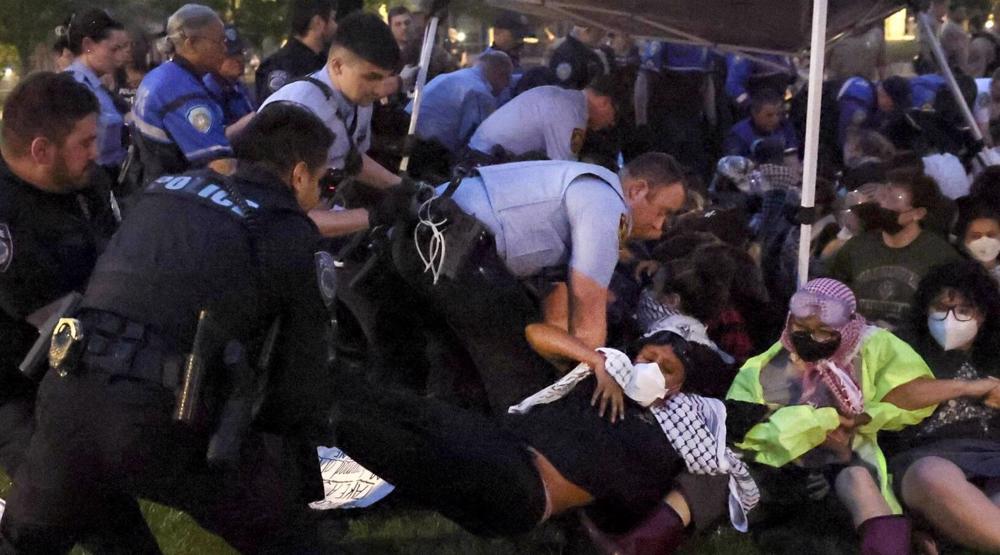
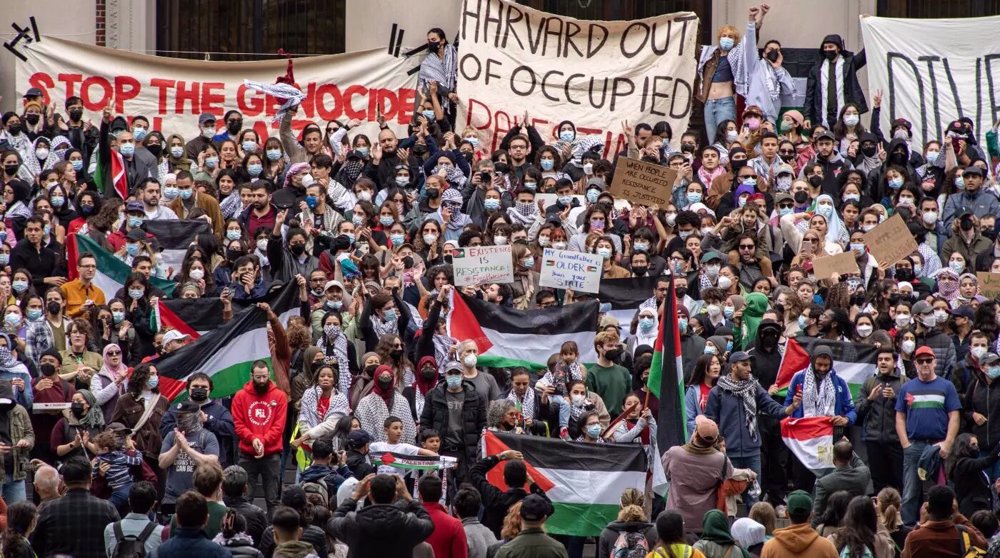


 This makes it easy to access the Press TV website
This makes it easy to access the Press TV website